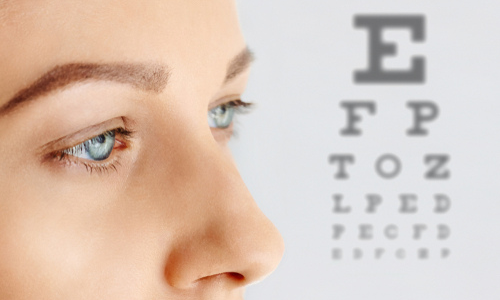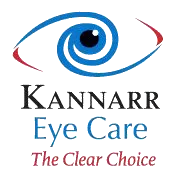
Myths About Your Visual Health
Misinformation tends to be confused with fact the longer it circulates. Unfortunately, that often means that people don't have the information they need to make informed decisions about their general or visual health. Have you heard any of these eyesight myths and wondered if they're actually true?
Myth: You Don't Need an Eye Examination if Your Vision Isn't Blurry
Fact: Vision changes can often occur very gradually. In fact, you may not even realize just how much your vision worsened until you receive a brand new pair of glasses or contact lenses.
Blurry vision isn't the only issue that can affect your visual health. As you age, your risk of glaucoma, cataracts and age-related macular degeneration rises. If you don't have regular eye exams, you may not realize that you have one of these conditions or diseases until you experience permanent vision loss.
All About Vision recommends vision examinations for children at 6 months and 3 years, then every two years until age 18. Adults 18 to 60 should see the eye doctor every two years. After age 61, eye exams should be scheduled annually.
If you wear glasses or contact lenses, you'll need to see your optometrist every year to determine if your prescription has changed. More frequent exams are also needed if you have diabetes, high blood pressure, a family history of eye disease, a previous eye injury, or currently have an eye disease.
Myth: Drugstore Eyeglasses Offer a Good Solution if You're Having Trouble Seeing
Fact: Choosing your eyeglasses from the drugstore or grocery store may seem to offer a simple solution if your vision has started to get a little blurry. Although they may be inexpensive, drugstore glasses offer a few drawbacks including:
- Lack of Customization: The glasses contain the same lens power in each lens and only offer a limited range of lens options. It's not unusual to need different lenses for each eye or require a stronger prescription than the store-bought glasses can offer. Store-bought glasses also don't provide correction for astigmatism, a refractive error that can distort your vision at both far and near distances.
- Discomfort: Wearing glasses that aren't right for your eyes can cause headaches and eyestrain.
- Worsening of Eye Conditions: It's not a good idea to assume that the glasses alone will correct your vision problem. If you have an underlying health or vision problem, skipping an eye exam may mean that your condition will worsen and cause temporary or permanent vision loss.
Myth: Eating Carrots Will Help You Overcome Vision Problems
Fact: Carrots contain vitamin A, a nutrient essential for good eye health. Although eating carrots and other foods that contain vitamin A is certainly a good idea, you'll still be nearsighted or farsighted no matter how many carrots you eat.
Myth: Sitting Too Close to the TV Will Harm Your Children's Eyes
Fact: Do you find yourself repeating your parents' warning to move away from the TV? Although you may experience eyestrain if you sit too close to the TV or hold a digital device close to your eyes, your kids may not have the same difficulty. The American Academy of Opthalmology reports that there is no evidence that sitting close to the TV will damage the eyes whether you're an adult or a child.
Myth: Children Outgrow Crossed Eyes
Fact: Strabismus, or crossed eyes, occurs when the eyes are misaligned. Although many people believe that children will outgrow crossed eyes, that's not true, according to the American Optometric Association.
Without treatment, your child will struggle to focus on near objects and experience double vision or depth perception issues. Eventually, your child's brain may start to ignore the input from one eye. Fortunately, strabismus can be treated if you make visits to the optometrist a priority in early childhood.
Myth: Reading in the Dark Is Bad for Your Eyes
Fact: Reading in dim light may also cause eyestrain and headaches, but your eyes won't be damaged if you don't turn on a light. Your need for light increases as you age. When you get older, tiny muscles that control pupil size don't work quite as well. As a result, the pupils don't widen as much as they used to in low light conditions.
Regular eye examinations offer a simple way to protect your visual health? Has it been a while since you saw the optometrist? Contact our office to schedule a convenient appointment.
Sources:
All About Vision: Eye Exam Cost and When to Have an Eye Exam
American Optometric Association: Strabismus
American Academy of Ophthalmology: Can Sitting Too Close to the TV Damage Your Eyes?, 12/9/10
